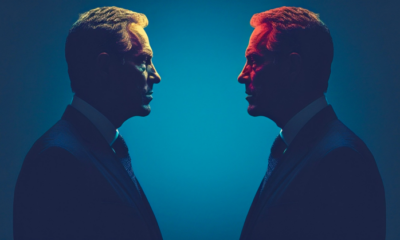Startups
3 Lessons I Learned From the Failure of My First Startup

You’re exhausted. You’ve put countless of hours into an idea that you believed in so much. Literally almost blood, sweat and tears were sacrificed for this vision to be accomplished. You had hoped and expected for a lot of things, and was excited to have plans for the future.
A few months ago, I wrote an article here titled, “What I Learned After Opening My First Business at 21.” My restaurant was doing well that time, and writing that article made me feel on top of the world. I thought that it was going to be that way for a long time, yet not so long after that, sales started to become stagnant and then declined.
As I write this today, my restaurant has already stopped operations. It stopped a few days ago, but a couple months back, I knew it was bound to happen. We couldn’t keep up with the bills we needed to pay, and they kept accumulating day by day. With a heavy heart and chaotic mind, we knew we had to close it down.
I couldn’t believe this was happening barely one year after starting operations. But if you were to ask me that if I had the chance to start over, would I do it again? I would still say yes. Despite its failure, there were still very important (also expensive) lessons that I learned that I would never have acquired otherwise if I didn’t start the business.
Here are a few lessons I learned after failing my first startup:
1. Entrepreneurship requires resilience
You cannot ever be successful if you haven’t developed resilience. Whether you like it or not, something will turn out wrong in your business. Maybe sometimes not to the point that it needs to be shut down, but something that could make your decisions critical to your organization goals.
You could give yourself time to grieve, but it shouldn’t stop there. Life goes on. And you need to get back on your feet if you still want to make a difference. The biggest companies that are successful right now all experienced a massive amount of failure.
But they never stopped trying. Because with every failure comes a lesson. Anyone with common sense would learn from that failure, and start again with more knowledge on what to do and what not to do.
Whenever I thought about the accumulated debts of my restaurant, I would have this sinking feeling in my chest and stomach. I knew that I would have to liquidate the assets. So I continued to search for buyers of the assets.
Instead of grieving for a much longer period, I knew I’d have to pick myself back up again so I could pay the debt. It might be hard at first, but if you call yourself an entrepreneur, quitting is not an option. We fail, we learn, then get back up.
“Success is not final, failure is not fatal: it is the courage to continue that counts.” – Winston Churchill
2. Learn to listen
Being a first-time founder, I had a very idealistic attitude. I had no experience in the food industry and established the business with only the belief that my partners and I would make it. I was wrong.
Aside from not being able to make it with that business, I realized what the naysayers had been telling me all along. But you have to be careful here. There are naysayers who have no credibility to back up what they say and want to bring you down. But there are also ones who speak from experience and are genuinely concerned for you. You must learn to discern the right voices to listen to if you want to succeed.
Taking risks is good, but make sure those risks are calculated and not reckless. We took a risk that wasn’t entirely reckless, but not all aspects of them were calculated. We were unsure of some parts of the business, and just “winged” it. Look at what happened to winging it!
Know when you need to jump with both feet or just one, but also listen to the voices who tell you when to put your feet in the water. Trust me, you never know when you will value their input.
3. Your failures do not define you
I never thought this would take a toll on my self-esteem, even when I knew I had to get back up. On the outside I looked normal. Going to school, work, and social settings looking like nothing had happened. But inside I was a wreck and didn’t want to admit it.
I would feel guilty whenever people would praise me about how “successful” I was at such a young age but that wasn’t true. For a while I thought that I was the failure. My insecurities started haunting me again and my browser history was filled with questions on what to do.
That was when I discovered that successful people failed more often than they succeeded. Even the ones with smaller businesses had their fair share of failures before finding an idea that worked for them.
But their failures never got to their heart. They weren’t the failures. The business failed, not them. So they tried again until they got it right. Maybe this business didn’t work out for me, but that doesn’t mean I’ll never be successful. The sooner you believe your failures don’t define you, the more the weight will be lifted off your shoulders.
People fail every single day. The difference between the ones who succeed and those who don’t is persistence and the drive to continue even after failing. It’s much better to try and fail than never having to start and learn nothing.
“Success is not a good teacher, failure makes you humble.” – Shah Rukh Khan
Have you ever started a business that eventually failed? What did you learn from it? Please leave your experiences below!
Shift Your Mindset
10 Powerful Traits Every True Thought Leader Possesses
In a world saturated with noise, thought leadership is the quiet power that shifts paradigms.

Thought leadership is more than just having strong opinions. It’s the ability to influence, inspire, and guide others by sharing original insights, innovative ideas, and deep domain expertise. It’s about sparking change, not just talking about it. (more…)
Startups
The Young Man’s Guide to Creativity: 10 Daily Habits to Improve Your Creative Mind
10 daily habits you can put into practice right now to improve your creativity

When I was 22 years old, I became a Top Writer on Medium.
It’s not an easy path. I lived in the Philippines and had never received a penny after writing over 100 digital articles. But I treated it like practice. If I couldn’t get other people to read my work for free, why would they trust me? (more…)
Startups
If You’re Not Reinventing Yourself, You’re Falling Behind! Here’s What To Do
Reinvention is the secret weapon of high performers.

Reinvention is the secret weapon of high performers.
Most careers follow a predictable script. You start at the bottom, climb the ranks, and eventually settle into something resembling stability. But the people who make the biggest impact, the ones who don’t just play the game but change it, break that script. They evolve. They shift. They reinvent. (more…)
Startups
The Silent Killer of Startups: This Might Be Draining Your Profits
If you are careless in managing your inventory, it can lead to a sudden depletion in cash flow

There are several issues in a startup, but if you are really careless in managing your inventory, it can lead to a sudden depletion in cash flow. Old, broken, and misplaced stock wastes space and profits. If inventories and storage aren’t managed properly, it hardly ever works.
-

 News2 weeks ago
News2 weeks agoBrandon Willington Builds 7-Figure Business by Ignoring Almost Everything
-

 Health & Fitness3 weeks ago
Health & Fitness3 weeks agoWhat Minimalism Actually Means for Your Wellness Choices
-

 Did You Know3 weeks ago
Did You Know3 weeks agoWhy Most Online Courses Fail and How to Fix Them
-

 Business3 weeks ago
Business3 weeks agoIf Your Business Internet Keeps Letting You Down, Read This
-

 Business1 week ago
Business1 week agoEntrepreneur’s Guide to Pay Stubs: Why Freelancers and Small Business Owners Need a Smart Generator
-

 Business6 days ago
Business6 days agoThe Simple Security Stack Every Online Business Needs
-

 Business5 days ago
Business5 days agoThe Salary Shift Giving UK Employers An Unexpected Edge
-

 Scale Your Business6 days ago
Scale Your Business6 days ago5 Real Ways to Grow Your User Base Fast



























9 Comments